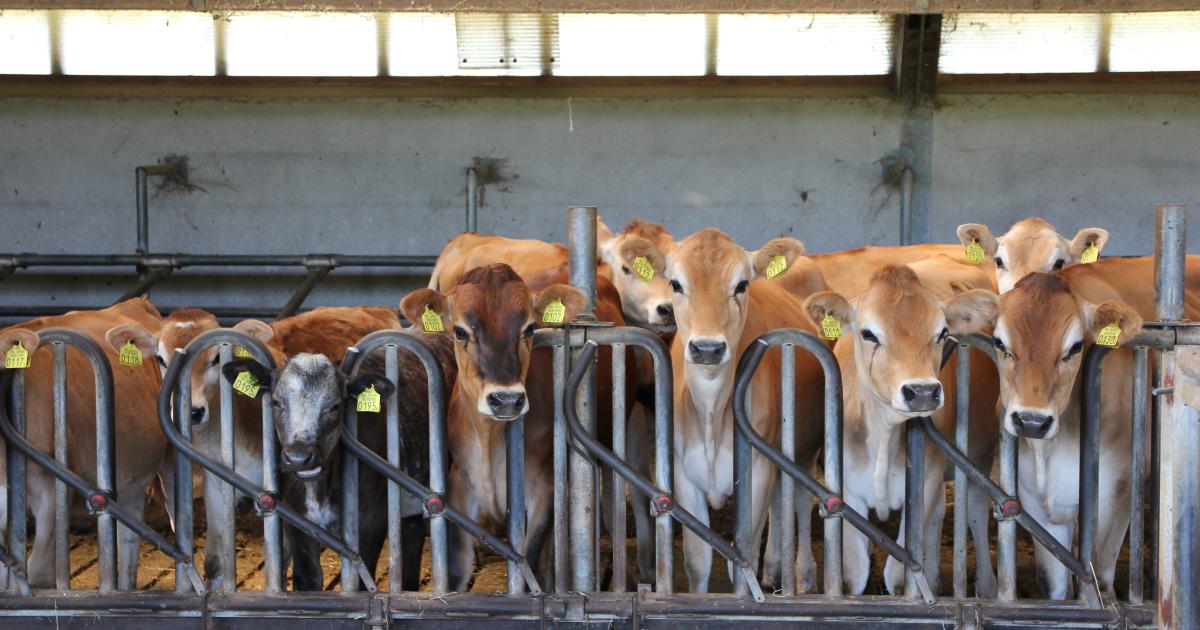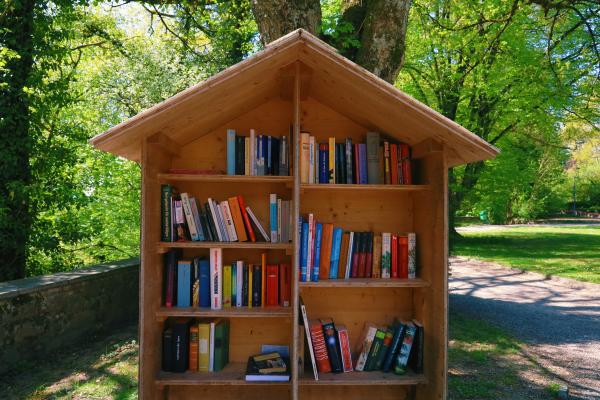-
By Partner EditorialsSep 17, 2019, 8:47 am2.3k ptsInsanely Great Special Content
Special ContentThere are many contributing factors to climate change, as we all know. If we accept that climate change caused by human activity is a reality, then we must also accept that some of the industries we rely upon must change their ways if we're to bring down the level of climate change caused by those industries. The aviation industry faces regular criticism regarding the amount of pollutants released into the atmosphere by planes, and has responded by pouring more resources into the possibilities of creating electric planes to help curb the problem. After aviation, agriculture is the next industry which attracts attention.

The climate change issues related to the agriculture industry run along two strands - the amount of methane released into the atmosphere by vast herds of livestock, and the amount of forest land cleared to make way for those herds. One of the reasons why vegetarianism and veganism are frequently promoted as healthier alternatives for the planet is that if there was less demand for beef, there would be less call for forest land to be cleared to make way for cattle. The more forest land we clear, the less oxygen is released into the atmosphere. We have seen this issue in the headlines very recently thanks to the disastrous fire in the Amazon rainforest, which some people believe has been started deliberately to make way for new grazing land for cattle.
While the current issue in the Amazon has generated political pressure and news headlines around the world, the practice isn't new. It's taken a disaster of this size to draw attention to it. The international community has long turned a blind eye to deforestation practices because there are rarely immediately obvious results. In terms of its impact on the environment, the effect is not unlike playing mobile slots games in reverse. When you're playing a mobile slots game in new UK casinos, you repeat the same action over and over again. You're aware that for the first few times you do it, nothing will happen. You're banking on the new slot sites paying you money after repeated spins of the reels. Most of the times when a logging company (or rogue farmer) burns down a forest, nothing noticeable happens beyond the clearing of the land, but sometimes the fire will spread out of control. Unlike mobile slots, that isn't a jackpot anybody should be happy with.
Despite the obvious issues that come with deforestation - and the unsustainable nature of burning down trees to make way for increasingly vast hordes of methane-producing cows, farmers in Britain believe that they've found a new solution to the problem which could make agriculture and cattle-rearing more environmentally friendly without compromising the environment. Officials in the country have set the industry a target of becoming carbon-neutral by 2040, which will not be possible without significant changes in the way the industry operates. The National Farmers Union of the UK has responded by offering a dramatic proposal which involves cooperation with power stations in the country. Although power stations may not sound like the obvious place to turn to for support when it comes to improving the state of the environment, their proposals may not be entirely without merit.
The NFU feels that they can meet the target without significantly harming beef production, or sacrificing farmland that already exists. In a statement released earlier this week, they say that their research indicates it's possible to offset 75% of all harmful agricultural emissions in the UK by having farmers grow fuel for use in power stations, and then capturing the carbon dioxide created by the processing of that fuel. That would lead to the production of so-called 'energy plants,' which could conceivably become the second-most prominent crop in the country after conventional wheat. 90% of all the harmful emissions which are produced by the UK's agricultural sector are produced by nitrous oxide from farm fields, or methane from livestock. The proposed solution, if implemented successfully, would offset those emissions completely.
Until now, the only viable suggested solution to reduce the harmful impact of cattle and methane has been to convince consumers in developed nations to reduce their intake of red meat - an idea which has struggled to gain traction with the public. Convincing consumers to change their ways when there's no tangible incentive for them to do so is difficult, and persuading farmers to accept a change in regulation which would impact them financially or inhibit their means of production would be no easier. If this new solution solved that problem by offering farmers a new stream of income by growing fuel for power plants, and means that red meat production can be kept at current levels, then it would seem to be the best of all worlds.
The aspect of the plan which centers on the growth of energy plants would rely on the successful progress of new technologies which currently exist, but are at the pilot stage. It's believed that power plants could run off captured carbon, which is a form of bio-energy. Willow and miscanthus grass, along with other carbon-rich plants, would make an obvious choice of crop to grow to support the new industry. As the target for the reduction in output is 2040, there's plenty of time for the new technology to reach the point of commonly accepted use in time to make the proposals a reality.
As with most practical ideas currently being suggested in the UK, the eventual success or failure of the plan could hinge on Britain's future relationship with the European Union. Large-scale changes to the farming industry would only be possible if financial resources were made available to pay for them, and at the time of writing, the UK farming industry is heavily subsidized by the European Union to the tune of $3.6bn. If the country leaves the European Union without any agreement on future trade arrangement - which is currently a strong possibility - that funding would immediately be withdrawn. It would then fall to the Government of the United Kingdom to replace that funding with money drawn from elsewhere. It may even be the case that more funding than that is required to carry out the necessary work to alter existing farmland. Perhaps the best way forward would be to organize a limited trial, and monitor its success. If it proves to be viable, it might not only become a new 'best practice' agricultural standard for the UK - the idea might catch on across the world.
Trending Today on EcoTopical
Leaf through planet Earths environmental headlines in one convenient place. Read, share and discover the latest on ecology, science and green living from the web's most popular sites.












